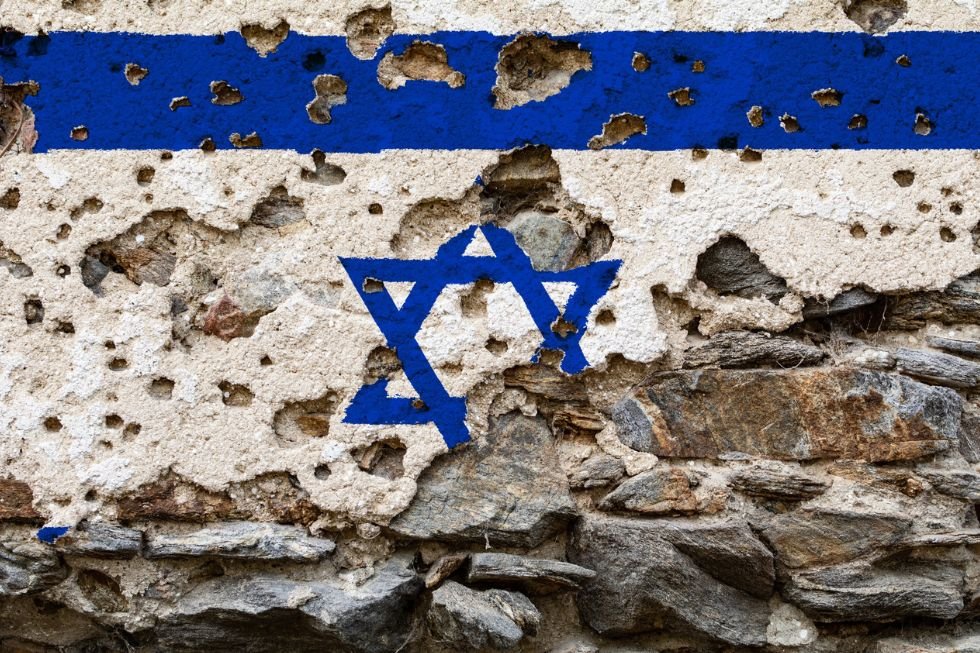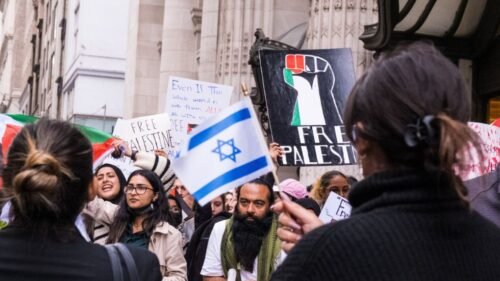Israelis are enjoying their mangos this summer at sharply reduced prices at the expense of food-deprived Gazan Palestinians. The sharp drop in mango prices is as much a result of Israel’s throttling of the flow of food into Gaza and its economic blockade of the Strip as it is a byproduct of increasing consumer boycotts of Israeli products and US President Donald Trump’s tariffs on Brazilian and Mexican imports of the fruit.
As a result, Israel is witnessing a mango glut, with the Gaza market shut down because of the almost two-year-long war, and Latin American producers are grabbing European market share from Israel with pricing that undercuts Israeli produce.
Mangos are the exception to the rule
Most private sector and primarily limited government sanctions and boycotts of Israel are causing Israelis discomfort, but not yet the kind of pain that could persuade Israeli Prime Minister Binyamin Netanyahu to rethink his warmongering and morally, legally and politically questionable policies.
However, the pain is likely to increase, all the more so as Israel and the Trump administration proceed with plans to make Gaza even more uninhabitable than it already is, so that Palestinians decide they have no option but to emigrate.
Already, Western nations are stepping up pressure on Israel, even if only conditionally and in ways that, with few exceptions, don’t increase immediate pain but over time could complicate Israeli trade and other relationships.
Belgium joined France, Britain, Canada and Australia in declaring that it would conditionally recognize Palestine as a state at this month’s United Nations General Assembly. Belgian Foreign Minister Maxime Prévot said the recognition would take effect once Hamas releases the last of its remaining 48 hostages abducted during the group’s October 7, 2023, attack on Israel, and no longer plays a role in the administration of Gaza.
Following in the footsteps of Australia, Canada, New Zealand, Norway and the United Kingdom, Belgium has declared Israeli National Security Minister Itamar Ben-Gvir and Finance Minister Bezalel Smotrich, two of the most militant ultranationalists in Mr. Netanyahu’s cabinet, persona non grata.
It was unclear whether Belgium would reverse its decision not to arrest Mr. Netanyahu were he to visit Belgium despite its obligation to enforce an International Criminal Court arrest warrant.
Belgium’s decision to ban the import of products from West Bank settlements, restrict procurement from Israeli companies and consular assistance to Belgians living in settlements, sanction settlers involved in attacks on Palestinians and impose “flight and transit bans” on Israeli government aircraft go substantially further than other Western states on the verge of recognizing Palestine. Ireland may be the exception, with parliament debating a bill that would criminalize trade with West Bank settlements that are illegal under international law.
The Belgian measures are only second to NATO member Turkey’s severance of trade and economic relations with Israel, and the banning of Israeli vessels from Turkish ports and official military aircraft from the country’s airspace.
Various Western nations have suspended, at least, some military sales to Israel, including Britain, France, Italy, Spain, Slovenia, Canada and the 12-member Hague Group, as well as Belgium’s Wallonia region and Japan’s Itochu Corporation.
Although opposed to a suspension of the European Union’s association and trade agreements with Israel, Germany, the Jewish state’s most important arms supplier after the United States, last month suspended new sales of weapons that the Israeli military would deploy in Gaza.
“Germany’s arms embargo could affect the replacement of Merkava tank engines. This means some tanks are out of commission, and the military’s ability to operate in Gaza could take a hit,” said military affairs journalist Amos Harel. In addition, the UK, France, the Netherlands and Belgium have banned Israeli companies, government officials and equipment from defense expositions.
Israel ignores the gathering European and Western storm at its peril
Europe, rather than the United States, is Israel’s largest trading partner, as well as the foremost destination for Israeli investments, according to the Amsterdam-based Centre for Research on Multinational Corporations (SOMO).
The Centre reported that the EU in 2023 held €72.1 billion (~$18.6 billion) in investments in Israel, compared to the United States’ €39.2 billion (~$42.4 billion). Similarly, Israel invested €65.9 billion (~$71.3 billion) in the EU, seven times more than the €8.8 billion (~$9.5 billion) invested in the United States. In 2024, European trade with Israel totaled €42.6 billion (~$46.1 billion), significantly more than the €31.6 billion (~$34.2 billion) with the United States in the same year.
Ronit Harpaz, the founder of a European Union-funded medical device startup, warned that European sanctions would be the death knell for Israel’s high-tech industry and military-industrial complex. “The termination of Israel’s participation in the (European Union’s) Horizon (research) program will be a strategic death sentence, not only for the high-tech industry, but also for the defense establishment,” Ms. Harpaz said.
With crackdowns on academic and nonacademic expressions of support for the Palestinians in the United States and various European countries, Utrecht University became the first Western academic institution to boycott Israel.
In a reflection of mounting public anger in the Arab world at perceived government impotence, refusal to break off relations — diplomatic or informal — with Israel and acquiescence with some, not all, of Israel’s war goals, activists from Qatar, Bahrain, Kuwait and Oman joined the Global Sumud or Steadfastness Flotilla with their own vessel.
Made up of some 50 ships carrying medical supplies, food aid and crews from more than 44 countries, the flotilla constitutes the third attempt this year by activists and civil society organizations to break Israel’s siege of Gaza.
The participation of Gulf activists is remarkable given that the autocratic Gulf states and other Arab countries have banned public pro-Palestinian manifestations and restricted freedom of expression.
As the flotilla set sail for Gaza, the United Arab Emirates (UAE), whose activists likely did not want to risk angering the government by joining the maritime caravan, dispatched its third ship, the SS Sheikh Hamdan, laden with 7,000 tons of relief, food and medical supplies to the Egyptian port of El Arish near the Gaza Strip in coordination with Egypt and Israel. The aid is designed to project the UAE as a contributor to alleviating the humanitarian crisis in Gaza, pacify public opinion and position the Gulf state as a key player in post-war Gaza.
Israel facilitates the Emirati endeavor by allowing the Gulf state’s aid to enter the Strip on trucks under Israeli supervision, while preventing civil society initiatives from entering Gaza’s territorial waters and docking in its port.
The Israeli navy, as with earlier civil society attempts, is likely to force the flotilla to dock at an Israeli port, detain those aboard the vessels and ultimately deport them. Even so, the Emirati effort, like similar initiatives by other Arab states, is unlikely to soothe public anger or change popular perceptions of Arab state impotence as well as of Israel.
Israel appeared to acknowledge this by reiterating in late July its advice to Israeli nationals and Jews to avoid nonessential travel to the UAE and warning that Hamas, Hezbollah and “Global Jihad” militants, as well as Iran may “try to carry out attacks against Israeli and Jewish targets in the UAE, especially on (the upcoming) Jewish holidays and Shabbat,” the Sabbath.
UAE Assistant Foreign Minister for Political Affairs Lana Nusseibeh warned this week that Israeli threats of annexing large chunks of the West Bank if Western states move ahead with recognition of Palestine would be a “red line.”
Going over Mr. Netanyahu’s head, Ms. Nusseibeh told an Israeli news outlet that it would “mean(s) there can be no lasting peace. It would foreclose the idea of regional integration and be the death knell of the two-state solution.” Ms. Nusseibeh’s warning also constituted a response to Israel’s new post-October 7, annexationist defense doctrine that seeks to emasculate its neighbors militarily rather than rely on deterrence.
Spelling out the doctrine, former deputy prime minister and Israeli ambassador to the United States, Michael Oren, asserted, “Never will we forfeit the need for deep buffer zones along all our frontiers. Never again will the IDF (Israel Defense Forces) favor a defensive over an offensive strategy — (the anti-missile defense system) Iron Dome over tanks and armored personnel carriers.”
The UAE is not the only country where Israelis potentially encounter hostility because of their country’s conduct of the war and public indifference, if not support, for Israeli devastation of Gaza and indiscriminate killing.
Travel for Israelis has become increasingly uncomfortable
Israelis have been harassed on European streets, kicked out of restaurants for speaking Hebrew, barred from attending cultural events, prevented from disembarking from cruise ships and questioned by authorities on suspicion of having committed war crimes in Gaza. Israeli offices abroad have been vandalized.
“While the government of … Netanyahu has stood defiant and unmoved by the hardening stance against it; the blowback against its citizens is certainly being felt,” said US-based Israeli historian Asher Kaufman.
To be sure, many Israelis want to see an end to the war, not because of the pain and suffering it inflicts on innocent Palestinians, but because they see it as the only way of returning the Hamas-held hostages.
Stepping up Western pressure on Israel in ways that increasingly will hit home is a question of when, even if far too late, rather than if as long as Mr. Netanyahu, backed by the Trump administration, proceeds with his phased occupation of the Gaza Strip and the imposition of ever more hardship on Gazans to give them no choice but to emigrate or be driven out of the Strip.
Mr. Trump is already encountering pushback from segments of his Make America Great Again and evangelical support base. “Israel is a protectorate and protectorates … do not call the shots. We call the shots; the American people call the shots. We’re going to do what is in the best interest of the United States of America and the Judeo-Christian West. Part of that is not this expansionist program, and particularly when you have the situation in Gaza … America First means no more lies about Iran and no more dragging us into Gaza,” said podcaster, activist and Mr. Trump’s former strategist, Steve Bannon.
Israeli chief of staff Major General Eyal Zamir identified a potential breaking point that, together with Ms. Nusseibeh’s warning, could prompt Europe to sanction Israel in ways that would hit the Jewish state where it hurts when he warned that conquering Gaza City would lead to Israeli occupation of Gaza.
“Your decision to conquer Gaza City … will lead to the conquest of the refugee camps in central Gaza, and then it will be a military government, because there will be no other body that could take responsibility for the population,” Mr. Zamir said. If Mr. Zamir is correct, the occupation of Gaza could be the straw that breaks the back of many in the international community.
[The Turbulent World first published this piece.]
[Kaitlyn Diana edited this piece.]
The views expressed in this article are the author’s own and do not necessarily reflect Fair Observer’s editorial policy.
Support Fair Observer
We rely on your support for our independence, diversity and quality.
For more than 10 years, Fair Observer has been free, fair and independent. No billionaire owns us, no advertisers control us. We are a reader-supported nonprofit. Unlike many other publications, we keep our content free for readers regardless of where they live or whether they can afford to pay. We have no paywalls and no ads.
In the post-truth era of fake news, echo chambers and filter bubbles, we publish a plurality of perspectives from around the world. Anyone can publish with us, but everyone goes through a rigorous editorial process. So, you get fact-checked, well-reasoned content instead of noise.
We publish 3,000+ voices from 90+ countries. We also conduct education and training programs
on subjects ranging from digital media and journalism to writing and critical thinking. This
doesn’t come cheap. Servers, editors, trainers and web developers cost
money.
Please consider supporting us on a regular basis as a recurring donor or a
sustaining member.
Will you support FO’s journalism?
We rely on your support for our independence, diversity and quality.








Comment